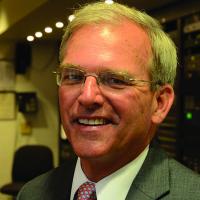September 22, 2021

I don’t get it. We had smart, capable candidates representing a range of ideologies, plans, and policies. We have many issues that need to be dealt with: global warming, transportation, schools, management of city agencies, overtime corruption, downtown and neighborhood development, racial injustice, and the pandemic.
We made it very easy to vote: early voting, ballot boxes available 24 hours-a-day, vote-by-mail for those queasy about going to vote in person.
Boston is a city with enough money to deal with its problems, but in need of a mayor with the skills to solve them. The candidates and their supporters likely spent over $10 million in the preliminary election for mayor — or about $100 per vote cast— blanketing media with their messages for weeks before the election.
Despite this, fewer than a quarter of registered voters bothered to cast a ballot last Tuesday. Take a look at mayoral election vote totals and the chart of non-votes by ward/neighborhood. Michelle Wu won first place with 35,888 votes and Annissa Essaibi George got second place with 24,186. But nearly 39,000 of Allston-Brighton’s registered voters did not cast a ballot, nor did about 31,000 in Southie, and more than 50,000 in Dorchester.
In all, 329,467 of Boston’s 437,647 registered voters did not vote in the preliminary balloting. This means that Michelle Wu topped the ticket with the votes of 8.2 percent of Boston’s registered voters and Annissa Essaibi George took second with 5.5 percent.
This is frightening. The mayor of Boston exerts control over nearly everything government provides in Boston. The mayor appoints the police commissioner and all department heads in city government. The school committee chooses the superintendent of Boston Public Schools, but it’s the mayor who chooses the school committee. The head of the Boston Planning and Development Authority is appointed by the mayor, and the members of the Zoning Board of Appeal, which has tremendous control over development in Boston, are appointed by the mayor.
In previous columns, I have urged Bostonians to vote because the position of mayor of Boston is far too powerful to allow a small number of Bostonians to choose her or him. But that is exactly what is happening again. The preliminary vote in 2013 was 31 percent. In 2017, it was 14 percent. And in 2021, it was 25 percent.
We can’t say we didn’t have some great candidates, or that it was difficult to vote, so we have to assume that a large majority of Bostonians have turned away from interest in municipal elections.
This brings me to some possible solutions. Last year, I wrote a column comparing elections in odd-numbered years (municipal balloting) to even-numbered year elections, and found that in Boston, twice as many people vote in even-numbered years, when we vote for the Legislature, governor and other state offices, US senators and representatives, and the president. I suggested that we eliminate odd-numbered year elections and conduct municipal elections in even-numbered years, that is, on the same ballot with state and federal candidates.
In addition to doubling the turnout, that would have the added benefit of saving upwards of $2 million in expenditures for separate elections for Boston’s mayor and its city councillors.
This is not a unique idea. The state of California, facing similar problems with municipal voting, passed the “California Voter Participation Rights Act” in 2015, which required cities to move their odd-numbered year municipal elections to even- numbered election dates by November 2022. Most cities in California have done so, or are planning to switch next year.
A second reform is term limits for the mayor. The power of the mayor’s office allows incumbent mayors to secure millions of campaign dollars from developers and others with an interest in the actions of city agencies, while stifling the ability of challengers to incumbents to collect campaign dollars. As a result, once elected, Boston mayors can stay in office until they die or decide to leave. I noted in a previous column that the last incumbent Boston mayor to lose an election was James Michael Curley, who lost the 1949 election after being released from federal prison.
It’s just wrong for someone to suggest that if we don’t like the mayor, we can just vote them out. Term limits, such as limiting a mayor to two terms, like the president, would create open- seat elections for mayor every eight years, allowing a broader and deeper debate on a vision for the future of the city, and what issues need a change in direction.
Neither Wu nor Essaibi George have any charter reform plans on their websites. Before the election, the Reporter asked all mayoral candidates if they support imposing term limits for mayor. Wu and Essaibi George oppose the idea.
On the question of changing the municipal cycle to line up with state elections, both Essaibi George and Wu, through spokespersons, told the Reporter this week that they are not in favor of the idea.
Maybe they should both reconsider. Or maybe Acting Mayor Janey and the City Council could give an outgoing gift to Boston by pushing these progressive reforms through the City and State. The Sept. 14 preliminary election showed us once again that Boston must make changes to our charter to increase voter turnout.
Bill Walczak is a Dorchester resident and former president/CEO of Codman Square Health Center. He was a candidate for mayor of Boston in 2013.



